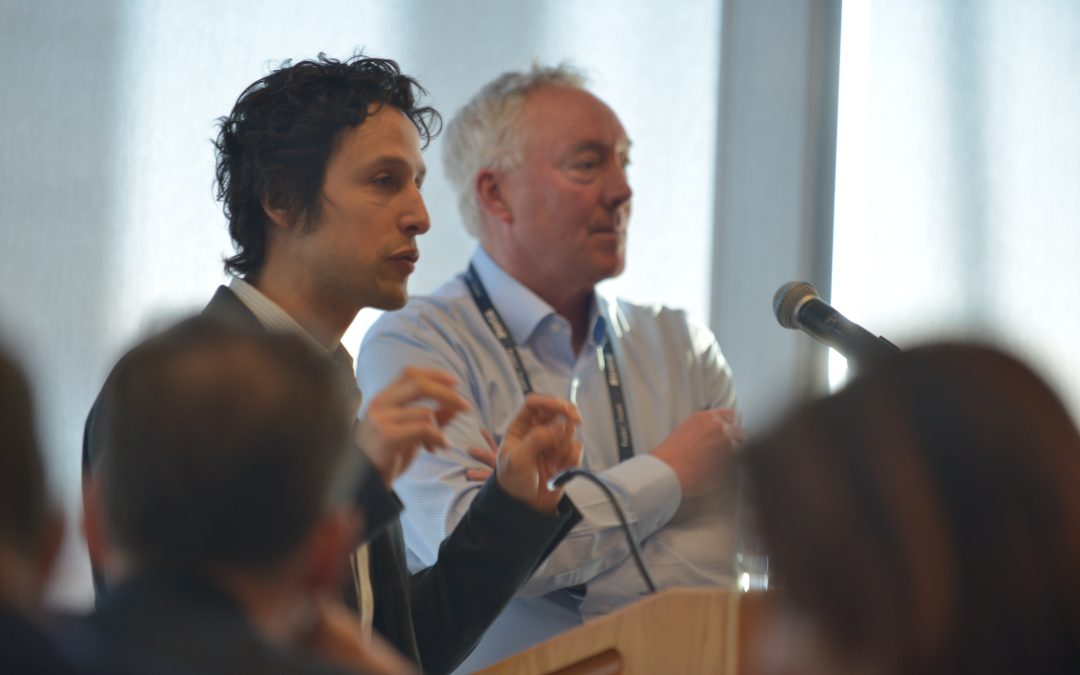Proto Ventures, PSFC Release Report at FusionX About Commercial Fusion Opportunities at FusionX Conference hosted by MIT’s PSFC
Fusion power is moving from lab to market and creating commercial opportunities for investors, entrepreneurs, researchers, and corporations, according to a new report from MIT’s Proto Ventures and the MIT Plasma Science and Fusion Center (PSFC).
“Fusion is entering the commercial era,” said report co-author David Cohen-Tanugi, Venture Builder at Proto Ventures. “We’re now in an era where the design and engineering of fusion power plants is happening in the private sector, with dozens of companies that have collectively raised billions of dollars.”
The report, titled “Enabling Commercial Fusion: Venture & Technology Opportunities for a Growing Fusion Industry,” offers a roadmap for directing research, creating business plans, investing in ventures, and setting policy around the path to build the first fusion pilot plant in the next decade, Cohen-Tanugi said.
“It’s happened in many other scientific endeavors before, where at some point this goes from a tool not just for scientific discovery but to change people’s lives,” said co-author Dennis Whyte, former director of the PSFC and faculty director of Proto Ventures. “Fusion has reached that inflection point.”
The report, unveiled on Feb. 21 at the 2nd annual FusionXInvest conference, outlines opportunities for third-party suppliers selling goods and services to the fusion industry.
Read the full report online here.
From Academia to Impact
A key example of the growth of fusion power as a budding commercial enterprise is the FusionXInvest conference, which drew more than 160 attendees to MIT’s Samberg Conference Center. Whyte and Cohen-Tanugi noted the diverse participants ranged from representatives of utility companies and government agencies to legal firms and venture capital investors.
“This is no longer simply a plasma physics challenge. Now there also are questions of financing, policy, engineering, systems integration, and electricity markets, and so on,” Cohen-Tanugi said. “That’s the evolution we’re seeing today, and that’s what made possible an event like the FusionX conference. And the fact that it’s being hosted at MIT confirms MIT’s leadership position in this emerging commercial space.”
The advent of a dynamic fusion startup scene has become possible thanks to a series of fusion breakthroughs at MIT and other universities coupled with substantial investment. At MIT, a key breakthrough came from a class project investigating smaller, more powerful fusion device magnets in a PSFC fusion design class taught by Whyte. In 2016, Whyte, his former students, and an MIT postdoc went on to found Commonwealth Fusion Systems (CFS), which still holds the record for the most Series B funding ($1.8B) ever raised in Massachusetts.
“It’s not that there’s not science to be done in fusion, but the attitude around fusion and our goal has changed. The goal is not just discovery, the goal is impact,” Whyte said.
Proto Ventures Finds White Spaces in Commercial Fusion
The new report is the first output from the collaboration between PSFC and Proto Ventures. Since 2023, Proto Ventures’ venture builder has been embedded in the PSFC to identify and build new venture opportunities in clean energy and fusion.
“Where are the gaps in the market to making fusion power possible? Finding those opportunities – those white spaces – that is really what sets Proto Ventures apart.” said Proto Ventures Executive Director Gene Keselman.
Whyte emphasized that partnering with Proto Ventures introduces innovative organizational strategies aimed at transitioning clean energy research from the lab to real world.
“Technical innovations by themselves will not get us there. We have to adapt to the special requirements and difficulties that come with fusion, the scale and complexities of the integrations, and the multidisciplinary aspects of it,” Whyte said.
